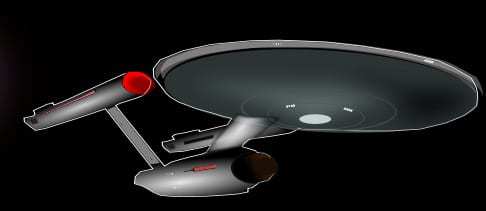A $10 million prize has been offered to the creators of a mobile device similar to the currently fictional device.
What was once technology that was available exclusively in science fiction is now being sought in real life in the form of an mhealth device that could become available here on Earth in the not too distant future.
There are now thirty four teams of entrepreneur teams seeking to discover a real version of a Star Trek device.
The reason that these researchers from nine different countries are currently putting an enormous focus on this mhealth device is that Qualcomm is offering a prize of $10 million to whoever comes up with it, first. This has been announced as the Tricorder XPRIZE contest. The goal is to come up with a medical scanner that can be compared with the one used by “Bones” McCoy in the original series of the franchise and that was redeveloped for the later versions of the show in its other series and movies.
 The competition is expected to run over a period of 3.5 years, meaning that this diagnostic mhealth device will cause a scramble.
The competition is expected to run over a period of 3.5 years, meaning that this diagnostic mhealth device will cause a scramble.
The mhealth device will need to be able to both diagnose and interpret at least fifteen different medical conditions as well as obtain vital health metrics. The purpose is to come up with a device that will be able to accurately diagnose a number of different diseases, such as pneumonia, tuberculosis, diabetes, hepatitis A, stroke, atrial fibrillation, and COPD. It should also be able to capture biometric data in real time, including information such as blood pressure, temperature, and respiratory rate.
The overview of the contest explains that when all is said and done, the mhealth tool will be able to “collect large volumes of data from ongoing measurement of health states through a combination of wireless sensors, imaging technologies and portable, non-invasive laboratory replacements.” It also goes on to say that the functionality and appearance of the device itself is up to the team, but it can’t be any heavier than five pounds. Should at least one of the teams be successful, this could turn mobile healthcare on its head.
